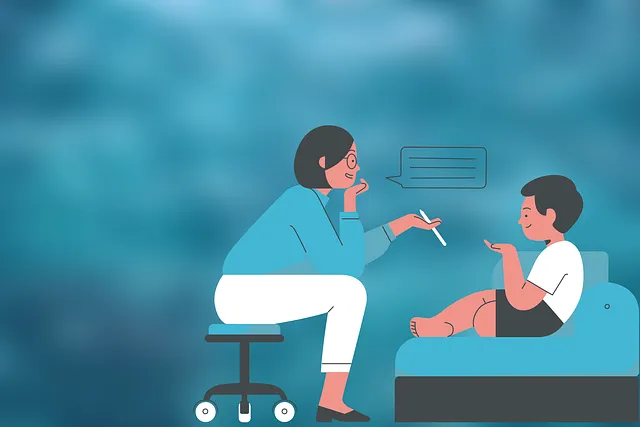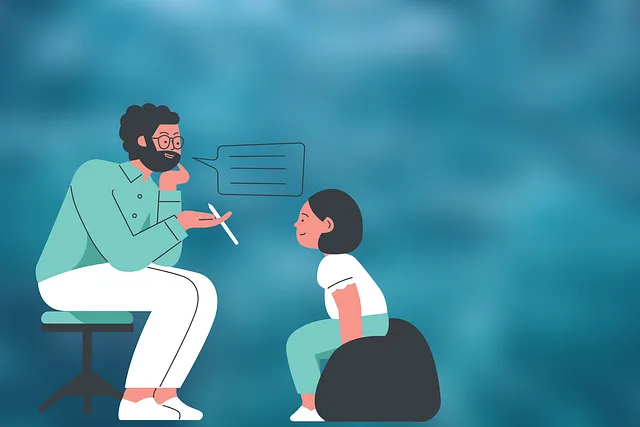Forgiveness is essential for maintaining healthy relationships, as highlighted by Kaiser Couple Counseling (KCC). Holding onto resentment leads to toxic patterns, impacting individual well-being. KCC offers tailored guidance for diverse relationships through counseling sessions and support groups. Unforgiveness causes conflict escalation and emotional disconnection, affecting couples and their families. KCC's holistic approach integrates mindfulness, communication skills, and emotional understanding to help couples navigate forgiveness. Effective communication, including sincere apologies, is key to resolving conflicts. Cultivating empathy strengthens relationships, especially in complex dynamics like same-sex counseling. Forgiveness fosters co-dependent behavior recovery, enhancing partners' ability to face future challenges together.
Unleashing the power of forgiveness is a transformative journey for any relationship. This article explores why forgiveness is essential for healthy connections, delving into its profound impact on couples—from signs of unforgiven resentment to potential consequences. We introduce the holistic approach of Kaiser Couple Counseling, offer strategies for effective communication and empathy cultivation, and highlight how forgiveness builds resilience and strengthens bonds. Embrace the path to healing and growth through the powerful act of letting go.
- Understanding Forgiveness: Why It's Essential for Healthy Relationships
- The Impact of Unforgiveness on Couples: Signs and Consequences
- Kaiser Couple Counseling: A Holistic Approach to Forgiving
- Effective Communication: Expressing and Accepting Apologies
- Cultivating Empathy: Walking in Each Other's Shoes
- Building Resilience: Strengthening Bonds Through Forgiveness
Understanding Forgiveness: Why It's Essential for Healthy Relationships

Forgiveness is a cornerstone in fostering healthy and enduring relationships, as emphasized by experts at Kaiser Couple Counseling. It goes beyond simply forgetting or condoning wrongdoings; rather, it’s about releasing negative emotions tied to past hurts, which can create toxic patterns within relationships. Holding onto resentment not only harms the individuals involved but also affects their emotional well-being and overall quality of life.
In the context of diverse relationships, including those in long-term partnerships or navigating polyamorous dynamics, seeking non-judgmental counseling from professionals can be immensely beneficial. Emotional support groups for divorcees, for instance, offer safe spaces to explore forgiveness as a means of healing and moving forward. Couple therapy sessions specifically tailored for these unique relationships can help partners understand each other’s perspectives, improve communication, and cultivate a culture of forgiveness, thereby strengthening their bond.
The Impact of Unforgiveness on Couples: Signs and Consequences

Unforgiveness can create a toxic environment within a relationship, causing deep and often irreversible damage. When couples struggle to let go of resentment, it leads to a cycle of negative emotions that erode trust and intimacy. The impact extends beyond the immediate couple; it affects their family and social circles as well. Research by Kaiser Couple Counseling highlights how unforgiveness can lead to increased conflict resolution attempts, which, paradoxically, escalate conflicts further. This dynamic often results in feelings of frustration, anger, and even depression for both partners.
Signs of this destructive pattern include recurring arguments about past hurts, a general lack of emotional connection, and a growing distance that feels impossible to bridge. In long-distance marriages where physical separation already presents challenges, unforgiveness exacerbates these difficulties. Video chat sessions might seem superficial if underlying issues remain unresolved. For couples seeking holistic healing, attending a couples’ therapy retreat can be transformative. These retreats focus on rebuilding emotional intimacy through a comprehensive approach that addresses the root causes of conflicts, fostering an environment conducive to forgiveness and reconciliation.
Kaiser Couple Counseling: A Holistic Approach to Forgiving

In the quest for harmonious relationships, Kaiser Couple Counseling offers a holistic approach to forgiveness that transcends traditional therapy. This method goes beyond mere talking and encourages active participation in repairing and strengthening bonds. By integrating practices from various disciplines, such as mindfulness, communication skills, and emotional understanding, Kaiser Couple Counseling helps couples navigate the complexities of forgiveness in a safe and supportive environment.
This unique form of pregnancy-focused marital counseling for new parents isn’t just about resolving conflicts; it’s about fostering growth and reconnections. Through alternative dispute resolution services for couples, partners learn to listen deeply, empathize, and let go of resentment. Moreover, by making financially accessible relationship building workshops a priority, Kaiser Couple Counseling ensures that forgiveness becomes an achievable goal for every couple, regardless of their economic standing.
Effective Communication: Expressing and Accepting Apologies

Effective communication is a cornerstone when it comes to resolving conflicts and fostering healthy relationships, as highlighted by leading experts like the Kaiser Couple Counseling team. Expressing apologies and accepting them can be transformative, serving as a powerful tool for healing and growth. Mindful communication training for intimate partnerships often emphasizes the importance of these exchanges in building strong connections.
When an apology is offered, it’s crucial to listen attentively and not let defensiveness cloud your judgment. Mental health professionals treating relationship anxiety suggest that uncovering the underlying causes of relationship problems can make apologies more meaningful. Accepting an apology, in turn, should be sincere and unburdened by past hurts or expectations. This exchange, when done with awareness and empathy, can help rebuild trust and strengthen bonds, ultimately contributing to a more harmonious partnership.
Cultivating Empathy: Walking in Each Other's Shoes

Cultivating empathy is a cornerstone of healthy relationships, and it’s a key area where kaiser couple counseling can make a profound impact. To truly understand your partner, try walking in their shoes—a simple yet powerful exercise that fosters deeper connection. This means actively listening to their experiences, feelings, and perspectives without judgment or dismissal. By seeing the world through their eyes, you gain valuable insights into how they perceive challenges and triumphs, allowing for more empathetic responses and stronger bonds.
This practice is especially beneficial in navigating complex dynamics, such as those explored in online counseling for same-sex couples or co-dependent behavior recovery programs for couples. When partners can empathize with one another’s past hurts and current struggles, it fosters a safe space where vulnerability becomes an act of courage rather than fear. This heightened sense of understanding encourages open communication, strengthens trust, and paves the way for genuine forgiveness to take root in your relationship.
Building Resilience: Strengthening Bonds Through Forgiveness

Forgiveness acts as a powerful adhesive in relationships, fostering resilience and deepening connections. When partners choose to forgive each other, they’re not just letting go of past hurts; they’re investing in the future of their bond. This process strengthens the emotional foundation of the relationship, enabling couples to navigate challenges with greater flexibility and adaptability.
Consider the benefits offered by renowned sources like Kaiser Couple Counseling. Their approach emphasizes the transformative power of forgiveness in addressing co-dependent behaviors, which can often be a root cause of relationship strain. Through couple’s meditation retreats for mindfulness or specialized therapy retreats focused on emotional intimacy, partners learn to communicate effectively, set healthy boundaries, and cultivate a culture of understanding and compassion. By participating in these programs, couples can break free from patterns that hinder growth, paving the way for deeper connection and lasting happiness—a stark contrast to the challenges presented by co-dependent behavior recovery programs.
Forgiveness is a transformative force that can revitalize and strengthen relationships. By understanding its significance, recognizing the harmful effects of unforgiveness, and adopting practices like effective communication and empathy, couples can create a healthier and more resilient bond. Kaiser couple counseling offers a holistic framework for navigating this process, enabling partners to unlock the healing power of forgiveness and foster a deeper connection.






